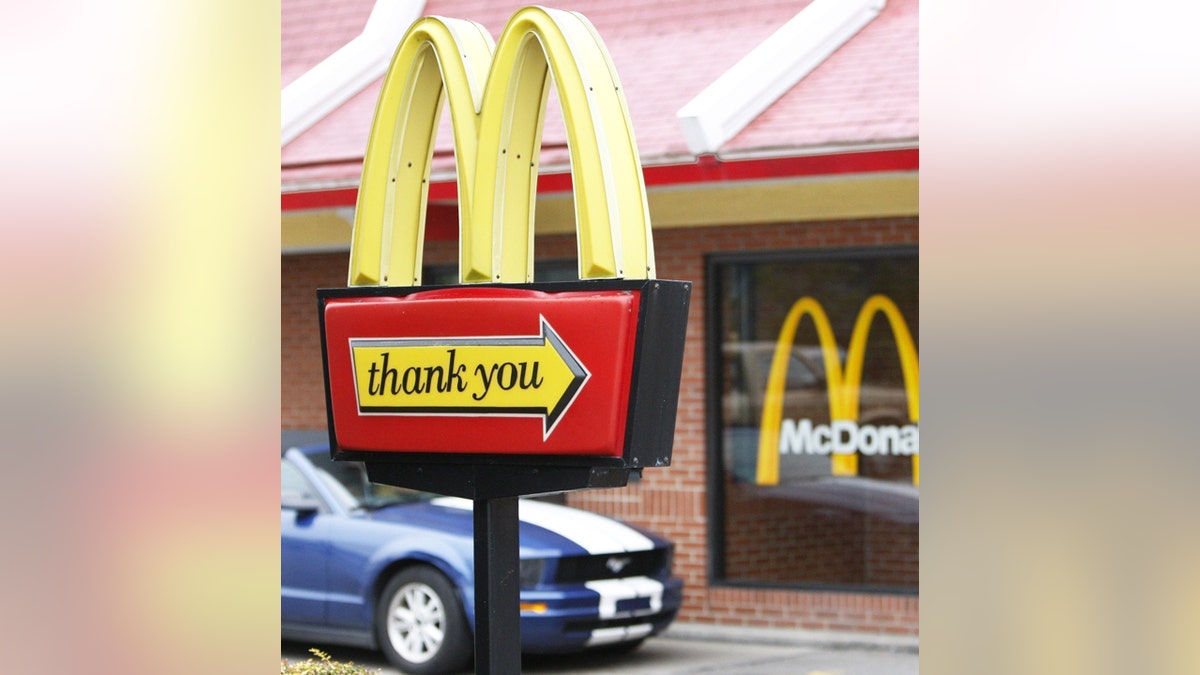
Does McDonald's drive-thru policy discriminate against the disabled?
A Louisiana man is suing McDonald’s over its drive-thru policy that prohibits customers without wheels from using the service.
Scott Magee, who is blind, says the fast food chain’s refusal to accommodate those who cannot drive is a violation of the Americans with Disabilities Act.
According to the suit, filed Thursday in the U.S. District Court of Northern Illinois (McDonald's headquarters is located in Oak Brook, Ill., a Chicago suburb), the chain has no "concern whatsoever for the accessibility of the late-night drive-thrus to the disabled."
Roberto Luis Costales, of New Orleans-based lawfirm Beaumont Costales, is representing Magee. He says McDonald’s current drive-thru policy is “discrimination in its purest form.”
“McDonald’s is effectively prohibiting not just the blind, but millions of disabled Americans who cannot drive from using a service that is available to all other customers,” Costales told FoxNews.com. Since news of the lawsuit broke, Costales says his law office has received calls from dozens of people, including a man with epilepsy. The suit is pending class-action status.
Many McDonald's restaurants operate only as drive-thrus during late-night hours, which reduces staffing costs and has also been cited as a security measure. McDonald's company policy prohibits service to any drive-thru customers on foot.
Costales says in its current form, the policy “violates the spirit of the accommodation” elaborated in current ADA regulations that ensure equal access and opportunity to the disabled in public and commercial spaces—including restaurants.
A representative from the U.S. Department of Justice said the department could not comment on this case specifically but pointed FoxNews.com to Title III of the ADA which deals with “Nondiscrimination on the Basis of Disability in Public Accommodations and Commercial Facilities.” According to the document, restaurants are included as places of "public accommodation" and must "make reasonable modifications in policies, practices, or procedures, when the modifications are necessary to afford goods, services, facilities, privileges, advantages, or accommodations to individuals with disabilities, unless the public accommodation can demonstrate that making the modifications would fundamentally alter the nature of the goods, services, facilities, privileges, advantages, or accommodations."
The court complaint cites a specific instance in August 2015 when Magee went through a McDonald’s drive-thru on foot and attempted to order a meal after the lobby had closed. According to court documents, the plaintiff claims he was refused service and the restaurant employees laughed at him.
Under federal law, Magee is not entitled to compensation but he asking for the company to change its policy or make a few small changes. Costales says there are several ways McDonald’s could easily accommodate the disabled.
“They could create an after-hours walk up service window, for example. This could generate more business for franchises and they are constantly changing the architecture of their business anyway,” says the lawyer. He also suggested a hotline where pre-registered blind or disabled customers could call in orders ahead of time and pick them up at a designated spot.
But, ultimately, says Costales it is up to McDonald’s-- not the consumer-- to find a safe way to accommodate all types of customers.
“We are not advocating people walking through drive-thrus,” says Costales. “But we are looking forward to having these small changes implemented in safe way. All we’re asking is for a small concession that has the potential to help millions.”
Senior U.S. District Judge Joan B. Gottschall gave McDonald's until June 17 to respond. The company's corporate office in Oak Brook, Illinois, said that it does not comment on pending litigation.
Last year, Magee's brother Emmett, who is also represented by Beumont Costales, sued Coca-Cola in Louisiana arguing that all machines should be accessible to the blind. The case was dismissed in a trial court but is currently being appealed.
